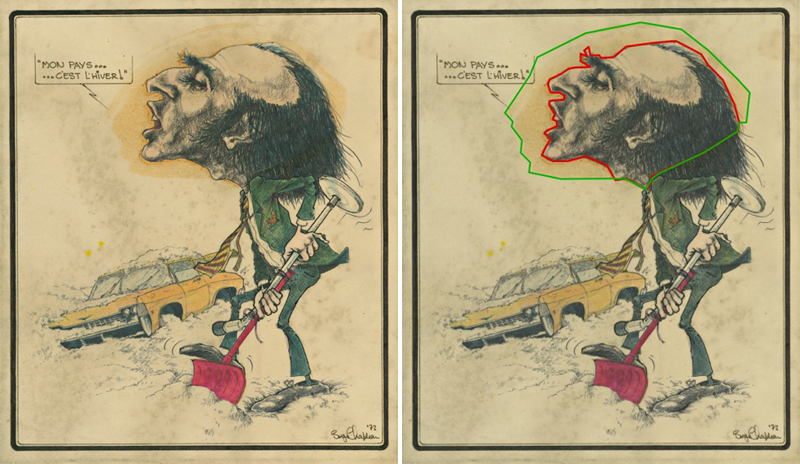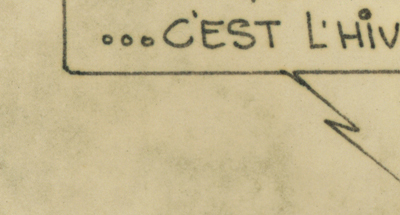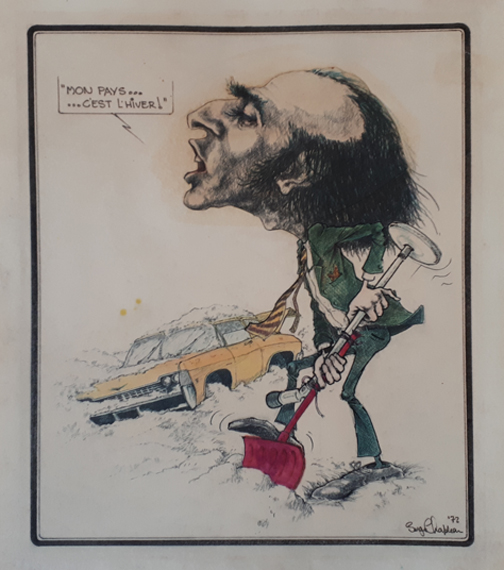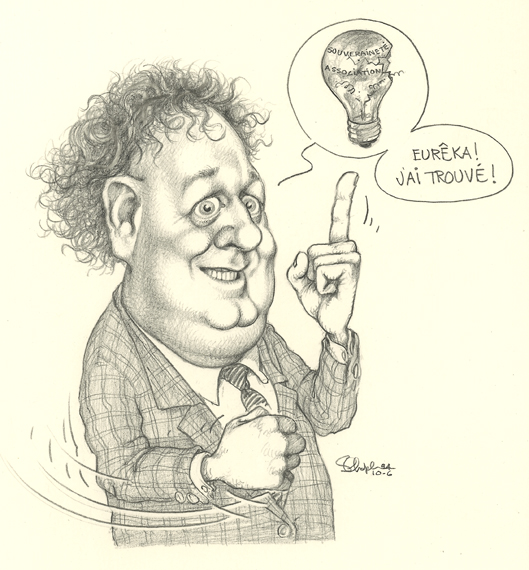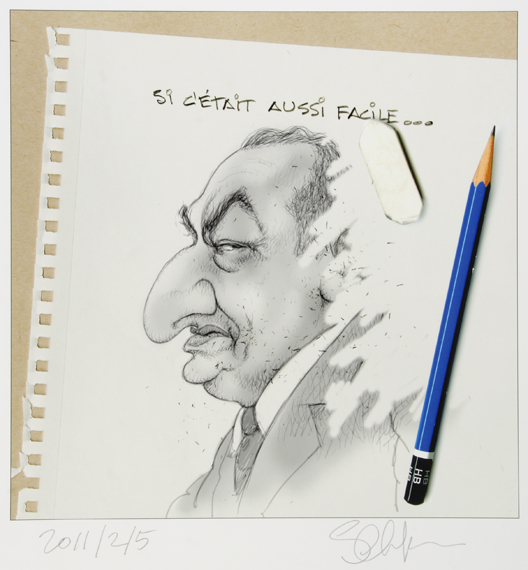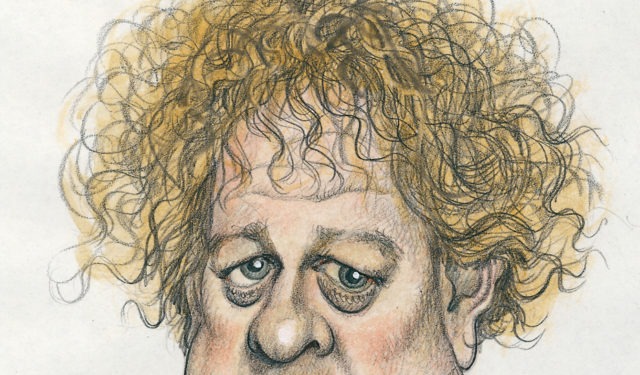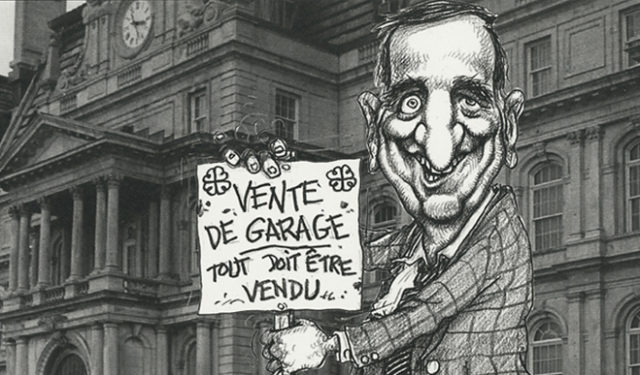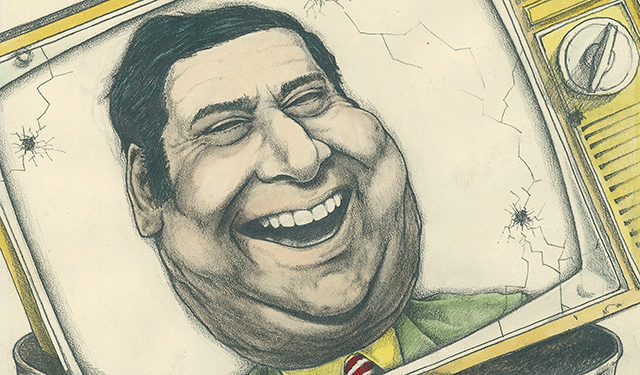Looking After the Chapleau Fonds
Follow the process of restoring an original Chapleau cartoon for the exhibition Chapleau, Profession: Cartoonist.
July 14, 2020
A cartoon drawn back in 1972 is now almost 50 years old. Over time, paper acts like a sponge; it absorbs pollutants and dust from the air and becomes misshapen, reacting to changes in humidity and temperature. After 50 years, certain types of damage become increasingly apparent: paper fibres have generally become brittle, glues have usually yellowed, and colours have often lost their intensity.
You missed part of this series?
Here is the link to The Chapleau Fonds, as Seen by a Conservator
For publication reasons, particularly short deadlines that require artists to work quickly, Chapleau sometimes pushed his materials to the limit. This often occurred in the cartoons from early in his career, making them more susceptible to damage because of the materials used.
Let’s look at the drawing, Mon pays…c’est l’hiver!, from 1972. Unfortunately, it was a victim of its environment: it was found in an outdoor storage area, which explains why the materials have not aged well. We can also see that the artist attached the character’s head to the drawing using a generous amount of adhesive that has yellowed, creating a very noticeable stain. In addition, there are small holes and tears in the paper, and a significant layer of dirt on the surface of the drawing with some inactive traces of mould. Since a picture is worth a thousand words, here is the drawing itself:
Given the drawing’s condition, we asked a paper conservator from the private sector to carry out a major conservation treatment of the cartoon for our Chapleau exhibition, Chapleau, Profession: Cartoonist. The treatment had two goals: ensure the preservation of the work and highlight its aesthetic qualities, which were obscured by extensive damage.
The conservator carefully detached the piece of paper with the drawing of the head, along with all the pieces of tape left on the work. She then removed the adhesive residue and treated these areas with special solvents to reduce the stains left by the adhesive. She also repaired the tears and holes in the paper, using different types of paper, depending on the thickness needed for the repair. She adhered the piece of paper with the drawing of the head back into position, and then carefully flattened the work, to eliminate any obvious deformations. In accordance with the conservator’s code of ethics, she only used very stable materials that were aesthetically compatible with the original, to avoid any long-term damage to the drawing1.
Fort heureusement, il s’agit ici d’un cas extrême. En effet, beaucoup de caricatures réalisées au crayon plomb, combiné avec du papier de bonne qualité, sont dans un état exemplaire.
Despite the overall excellent state of much of Chapleau’s work, 13 of the 150 caricatures featured in the exhibition needed conservation treatment.
Chapleau is an artist; his art is caricature. He is equally comfortable with a pencil and eraser as he is with a graphics tablet and stylus.
As conservators, we are extremely pleased every time we have an opportunity to display his work publicly. This is not the first time that Chapleau’s cartoons have been featured in one of our exhibitions. Chapleau, Profession: Cartoonist, the first major retrospective of his career, has given us another chance to take care of his fonds. With an almost daily presence in the media for all these years, this cartoonist has made us both laugh and think, while our role is to preserve the images illustrating his incredible talent.
1. Séverine Chevalier, Mon pays c’est l’hiver, treatment report

